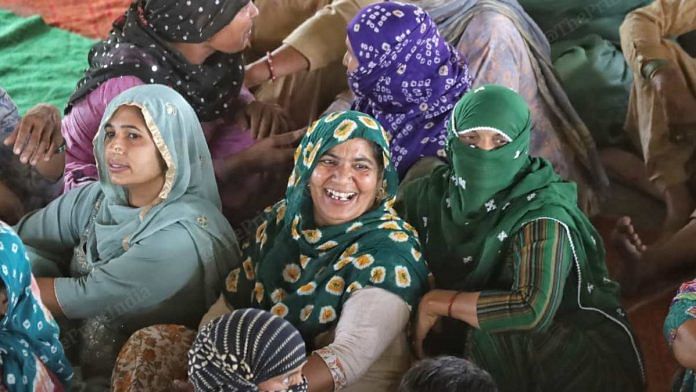
Thank you dear subscribers, we are overwhelmed with your response.
Your Turn is a unique section from ThePrint featuring points of view from its subscribers. If you are a subscriber, have a point of view, please send it to us. If not, do subscribe here: https://theprint.in/
In India, women did not have a proper place in socio-economic decisions for centuries. before independence. Most of our ancient society had lights and shadows (caste system). For various reasons, women have not been given the rights, equality, economic opportunity, and civil rights they deserve. After the emergence of feminist thought in the 19th century from a society that considered education, economic opportunities, social freedom, political rights, enhancement of their intelligence, respect for them, and giving equality to women of all castes, which was contrary to Hindu beliefs, a movement emerged as a resistance to social structures. The Indian caste system also played a very big role in creating a male-dominated society that always rejected women’s freedom and equality.
Women’s reservation bill is A Remedy worse Than the Disease:
There is now a broad consensus about the need for enhancing women’s representation in legislatures. However, the women’s reservation bill, introduced in Lok Sabha has severe flaws and is likely to do more harm than good. The Bill provides for the reservation of one-third of all seats in the Lok Sabha and the Vidhan Sabhas for women. This reservation shall also apply for seats reserved for Scheduled Castes (SCs) and Scheduled Tribes (STs). As the reservation is large, permanent reservation of certain seats is neither feasible nor politically permissible, and therefore the Bill provides for rotation of reservation in every election.
Such compulsory rotation violates the very basic principles of democratic representation and leadership development. In most cases, the male politicians will be tempted to spend much of their political capital helping their own female relatives in cornering these reserved seats. Such proxies would be expected to keep the seat ‘safe’ for the men until the next election when they would again try to reclaim their seats. The experience of fixed quotas in a few countries where it has been tried, such as Nepal, the Philippines, and the erstwhile Soviet Union, has not produced very successful results for women’s participation.
While Women’s reservations will do good for the empowerment of women can be a debatable topic in a civil discourse but the way the Indian political community acts on the policy, tells a story of lacking the political will to women empowerment.
Given these infirmities, it is necessary to design better models for enhancing women’s representation in legislatures. Germany’s Free Democratic Party (FDP) unanimously rejected mandatory women’s quotes while they chose the most number of women leaders to lead their political party and election campaigns and took extraordinary measures to attract more women leaders and enhance their active participation in party and elected positions. Political parties should voluntarily encourage and support women leaders’ participation in political and electoral politics instead of Mandatory processes. Most successful women in Indian politics come from either affluent families or political dynastic families. so Political parties should denounce their dynastic political practices to encourage women irrespective of their social and economic conditions.
The Women’s Bill, which has been pending for 25 years, shows the political parties’ disregard for women’s empowerment. Instead of bringing the women’s bills into the picture, amendments can be made in the Representation of People’s Act, 1951. If you take a closer look at the previous elections so far reveals that the success rate of women in elections is higher than that of men. Our society respects women leaders. History clearly shows that voters have never discriminated against women candidates. Given a chance, voters are more likely to elect a woman than a man. Let’s set aside the law for a while. If the national and regional political parties had indeed the political will to do so, then political parties would have allowed women candidates to contest elections in at least one-third of the seats, regardless of the law.
Independent India had a great opportunity to equal importance to women after independence but the Indian political community never even care to look after women’s issues and women’s civil rights. women will get their due place if they show equal respect and equal rights rather than verbally. The idea that strong women’s empowerment is inevitable in a developing economy and that politics means crime, corruption, and politics will not change is well ingrained in the minds of the people. That notion is likely to go away if women take that leadership to get out of it. Standards improve in parliament, in the legislature, in governments, in politics, and in public debate.
Yet many women have been achieving success in their own style over the past few years in all spheres such as social, economic, cultural and agricultural, political. In most cases, only women from hereditary backgrounds are benefited. Opportunities and leadership are not easy for those who come from common backgrounds. The population of women in our country is approximately equal to that of men, women can be a crucial part of nation-building and the overall development of the country. the need for empowerment of women really hoping that this empowerment will take shape in the society
These pieces are being published as they have been received – they have not been edited/fact-checked by ThePrint.
Also read: SubscriberWrites: A poem to highlight the personal experience of working women in India

COMMENTS